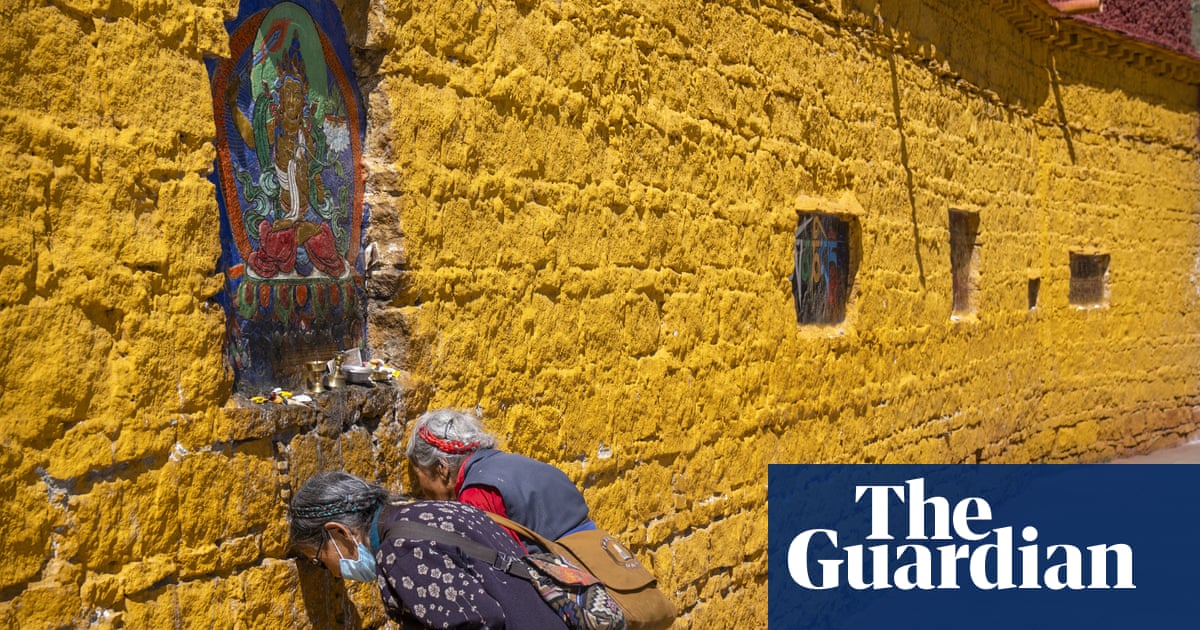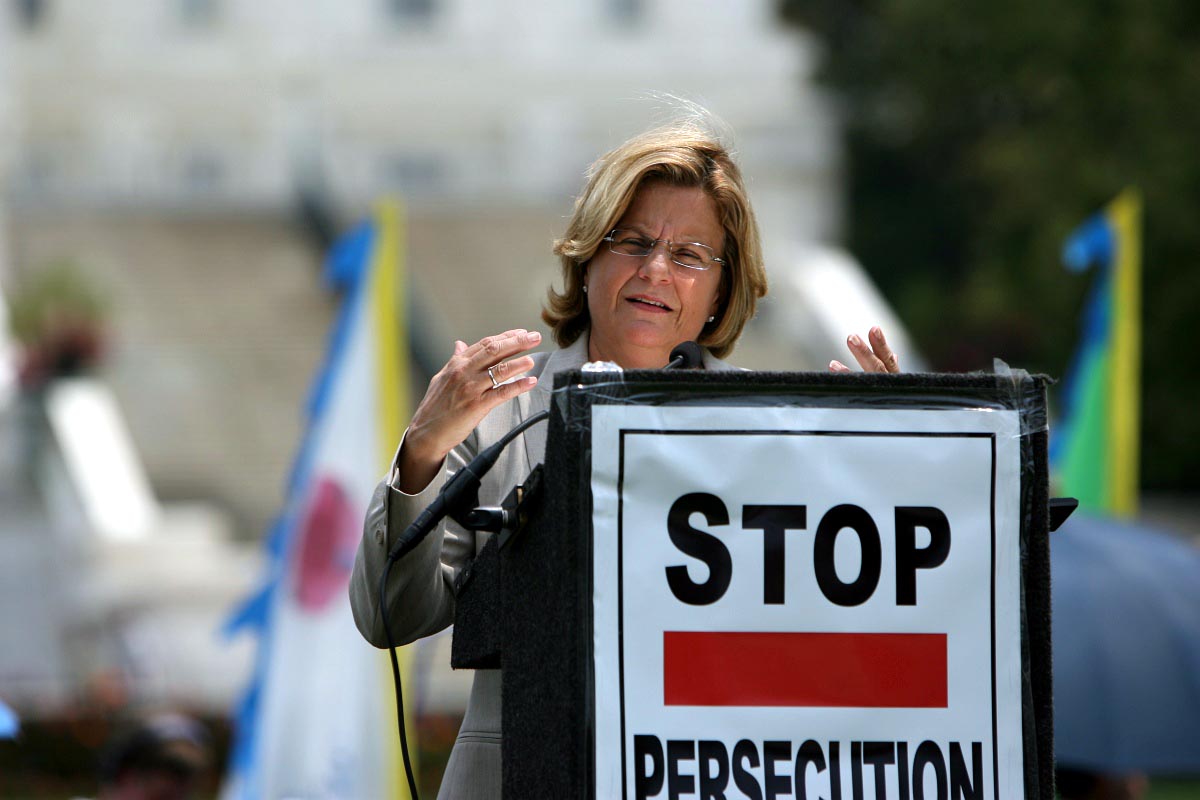Tibet monks jailed with no apparent evidence of wrongdoing, says HRW
Show caption Members of the Tibetan Buddhist faithful pay their respects at a holy site at the base of the Potala Palace in Lhasa in western China’s Tibet Autonomous Region. Photograph: Mark Schiefelbein/AP Tibet Tibet monks jailed with no apparent evidence of wrongdoing, says HRW Four men were jailed for up to 20 years after violent raid on monastery in 2019, says Human Rights Watch Helen Davidson in Taipei @heldavidson Tue 6 Jul 2021 14.00 BST Share on Facebook
Share on Twitter
Share via Email 1 month old
Four Tibetan monks were sentenced to up to 20 years jail in secret trials with no apparent evidence of criminal wrongdoing after a violent raid on a monastery in 2019, according to a report from Human Rights Watch, which calls for their release.
The raid, details of which the rights organisation says have come to light for the first time, was sparked by police obtaining a phone, accidentally left at a cafe, containing WeChat messages to people in Nepal and evidence of a donation to an earthquake relief effort.
Human Rights Watch (HRW) said the case demonstrated the pressure on local officials in Tibet to stamp out political subversion, even where no crimes appeared to exist, in preemptive policing operations.
“No reports have come to light indicating any political or dissident activity by the monks apart from routine misdemeanors, such as possessing pictures of the Dalai Lama on their phones and exchanging messages with Tibetans overseas, with no indication of any purpose considered subversive,” HRW said.
The group drew on interviews with Tibetans outside China, official media, social media, and exile media after hearing of the raid while conducting other investigations to piece together the available details of the case in a 60-page report released on Tuesday.
It said that in late 2019 Choegyal Wangpo, a monk from the Tengdro monastery in the Tibetan Autonomous Region (TAR), was arrested, interrogated, and severely beaten by police after they obtained a phone he had left in a Lhasa cafe. Authorities then raided his village in Tingri county and the adjoining Tengdro monastery, arresting about 20 monks and detaining some for months.
The village residents were subjected to political education sessions to “unify the thoughts of monks and nuns” to “follow the party”, according to a state media report. Three days after the raid a monk, Lobsang Zoepa, who had allegedly been beaten in detention, took his own life, in apparent protest, HRW said.
Four monks; Choegyal Wangpo, Lobsang Jinpa, Norbu Dondrup, and Ngawang Yesh, were detained for more than a year before being tried in secret, on undisclosed charges, in the Shigatse intermediate people’s court, and sentenced to “unprecedented” terms of 20, 19, 17 and five years in prison. HRW found no evidence the monks’ families had received sentencing documents, or that the defendants were allowed independent legal counsel.
“I do think that this report ought to feed the debate about the need to hold the government accountable for serious human rights violations,” said HRW’s China director, Sophie Richardson.
“What has to be at the top of the list is a hope that these four people are released or at least treated decently while they’re in detention … A 20-year or even a five-year sentence could be a death sentence effectively.”
HRW said the harsh sentences reflected pressure on Chinese officials to crack down on political subversion, even imaginary, to meet the expectations of China’s policies of preemptive policing.
Preventive policing occurs across China’s ethnic communities, most notably in Xinjiang, where millions of Uyghurs and other Turkic Muslims have been subjected to policies deemed by some governments and legal groups to be genocide. Tibetans have not been subjected to mass detention on the scale seen in Xinjiang, but “are in many ways constrained as others are outside of the detention facilities”, said Richardson.
Tibet has been under tight Chinese government rule for decades, including mass surveillance, labour programmes, and religious and cultural suppression, after an annexation in the 1950s killed thousands and sent the Tibetan leader, the Dalai Lama, into exile. China claims it was a peaceful liberation which freed the region of a feudalistic system and brought economic advancement, but has stepped up control efforts in recent years.
Sonika Gupta, an associate professor at IIT Madras and convener of Tibetan studies group, Tibetscapes, said the Chinese government had criminalised “integral aspects of the Tibetan identity”, including revering the Dalai Lama, in an effort to elevate the Communist party above religious faith.
“The CCP has a repressive hold on religious training, practice and worship in monasteries … In everyday life, Tibetan religious and cultural practice is routinely debased.”
The Chinese government has been contacted for a response.











